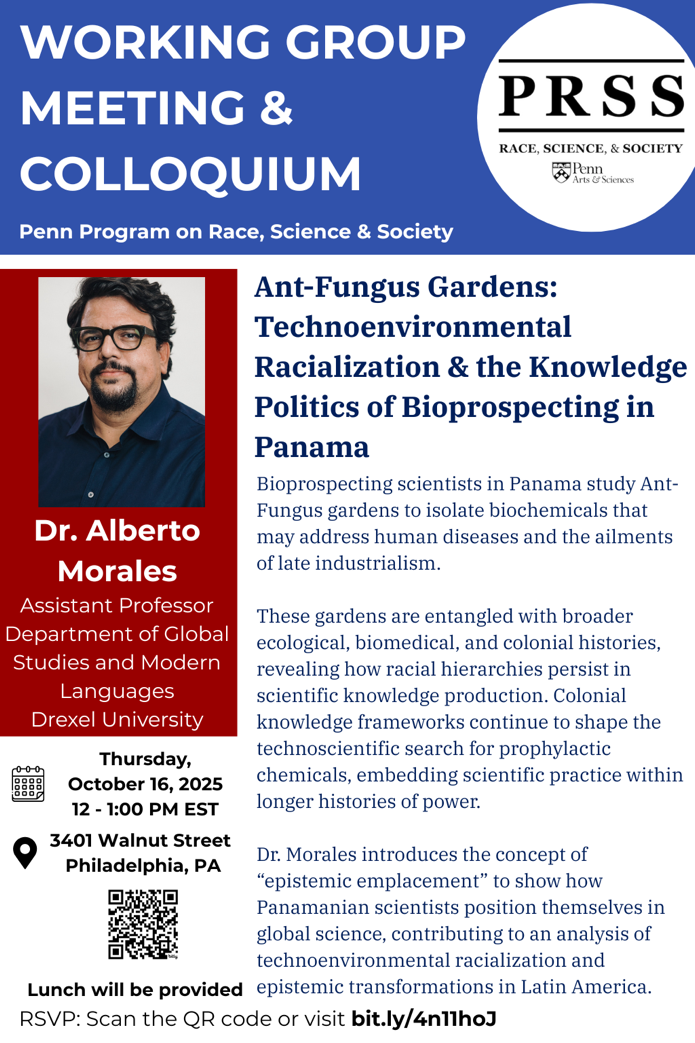Thursday, October 16, 2025 - 12:00pm
3401 Walnut Street, Philadelphia on the Penn Campus

Join Program for Race, Science and Society Thursday, October 16, from 12:00 to 1 for Ant-Fungus Gardens: Technoenvironmental Racialization and the Knowledge Politics of Bioprospecting in Panama, presented by Dr. Alberto Morales, Assistant Professor, Department of Global Studies and Modern Languages, Drexel University. Register to secure your spot!
Dr. Alberto Morales works at the intersections of biotech sciences, multispecies relations, racialized geographies, global health in/equity, and the geopolitics of knowledge production. His first book, Designs on Natureculture: Esperanza, Multispecies Collaboration, and Planetary Health, examines Latin American scientists’ political strategies to redress neglected, systemic issues of health, poverty, and environmental ruination through multispecies experiments on biodiversity. Based on long-term ethnographic research in Panamá, Designs on Natureculture examines biotech laboratory workers and government policy officials’ investments in science, technology, and innovation as sustainable forms of national development.
Insect ecologies and multispecies relations, like in Ant-Fungus gardens, have now come to occupy the technoscientific imagination of bioprospecting scientists looking for "entities of biological interests" that may serve salutary purposes for humans. Bioprospecting researchers in Panama deploy microbial and ecological understandings of Ant-Fungus gardens that will enable them to isolate biochemicals to one day offer interventions for diseases and the growing ailments of late industrialism locally and globally. In this sociotechnical/technoenvironmental arrangement, Ant-fungus gardens are nested and entangled with other life forms and forms of life, including racial histories and various biomedical articulations such as tropical medicine and global health disparities produced by layers of colonial rule. By closely examining the scientists' work with the ants and the biomedical histories of place they are entangled in, I raise questions of difference, specifically persistent racial hierarchies in scientific knowledge production. I underscore how knowledge frameworks carried forward from colonial times continue to influence technoscientific search for prophylactic chemicals. I introduce “epistemic emplacement” to examine how Panamanian scientists understand themselves in global science, how place is figured and configured in hierarchical relationality to other places. This paper contributes an analysis of technoenvironmental racialization and its impact on emergent epistemic transformations in Latin American contexts.
To RSVP, go to bit.ly/4nllhoJ
Lunch will be provided to registered guests.

 Native American & Indigenous Studies at Penn
Native American & Indigenous Studies at Penn